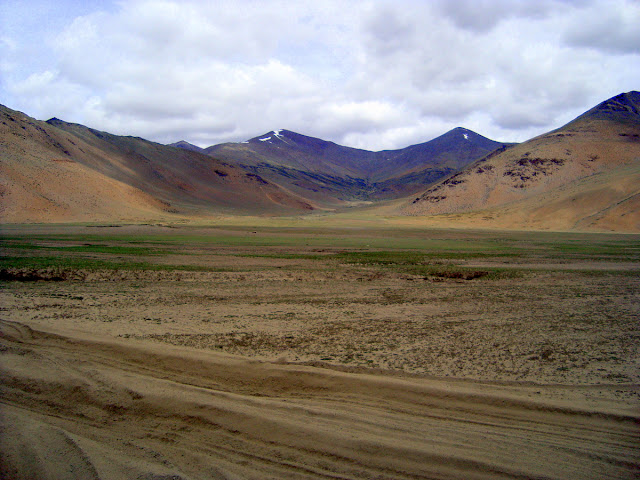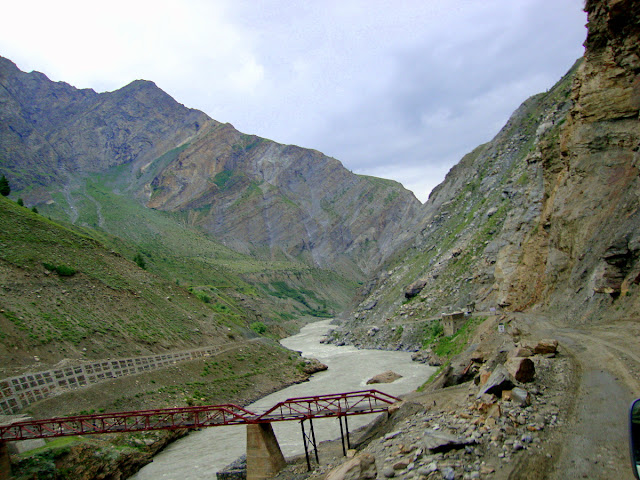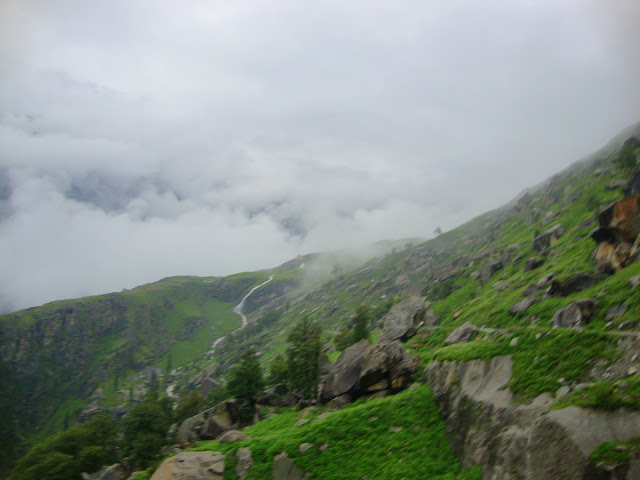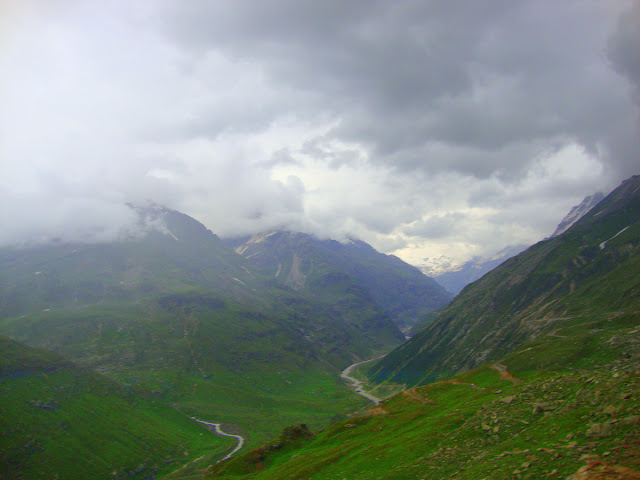We continue our adventure in the hills of Ladakh. If day one of our journey was memorable, day two turns out to be charming.
Sarchu @ 14,000 feet is a high altitude destination in itself. The altitude, strange yet beautiful surroundings and mild AMS kept us awake the whole night at Sarchu. Even the sun did not miss out on the beauty of this wonderful place and was up and running at about 4.30 AM!
We were ready for the second day’s experience by 6 AM.

Mesmerising morning colours as we leave Sarchu
As we leave Sarchu, Tsarap Chu river gives us company. We drive along side the river. We cross the river which has created canyon like structures all along its course.

The road and landscape turn barren and desert like with snow capped peaks at distance

You see the canyon like structures which are nothing but wind weathered sand dunes


Pang is the last habitat of Army establishment you see till you reach on the outskirts of Leh
The road begins to climb again. We leave Pang and cross Nakee la and Lachlung la Passes and notice the terrain changing into desert like as we enter the vast plains surrounded by mountains. We find ourselves in a “wild west” kind of a landscape where we see rocky outcrops, natural arches and tall mountains.

Barren landscape looks beautiful with snow capped peaks in the horizon
 |
| Brinda @ Nakee La |

Crossing Tsarap Chu waterway as a convoy

From Pang it is all along climb till Nakee La

The landscape is so barren it resembles wild west of USA

Natural Sand arch - Nature at its best

Close up shot of Sand Arch

Streams flowing between huge rocky terrain

This stretch is just beautiful - look at the sculpted sand walls

Sculptured sand walls

Moreh plains.......extending for miles

We leave Moreh plains behind and head for our final climb is towards Tanglang la, which is over 17,000 ft. This is a continuous, relentless climb. This is the second highest motorable pass in the world. You can feel the rarefied atmosphere here where the oxygen content is less in atmosphere which makes you tired very fast.

The ascent begins

Breathtaking landscape as the ascent to Tanglang La begins



Brinda @ Tanglang La - Second highest motorable pass in the world
As soon as we start our descent towards Leh, we find “Indus” river flowing all along till Leh. The mountains suddenly become more colourful and we find shades of red, amber, violet and brown. It is like driving through a multi coloured tunnel.The Indus brings with it more life and green and we find mustard fields and other crops in the valley.

From Tanglang La it is descent to Leh. You are given company by fast flowing Indus river and the mountains turn colourful.



Mustard fields in Indus valley
We now get a glimpse of “gompas” on hilltops and the mountain air seems to carry with it soothing “Buddhist chants”. The road towards Leh becomes more desert like and we notice “white chortens (stupas)” at various places on the road. The army camps make an appearance and the road is now “alive” with long convoys of army vehicles which are moving towards Leh and Kargil. After Upshi, Karu, Thiksey and we enter Leh.

Welcome to Leh
As we sip tea in a cafe in Leh, we could not help but recall the beautiful moments on the road- the memory of this drive will linger along for years after the road has gone - It’s an experience of a lifetime!
Post Script
Manali - Leh road journey is one of the beautiful one can think of. Travel to Ladakh can not be complete if you do not experience this journey. You cross four passes of different heights, you go through snow, streams and precariously narrow stretches at places. The landscape changes every few KMs. It is a photographer's paradise indeed. We did the trip in two days and i highly recommend it be done in three days (details in my previous post on this road trip).
Please look at travel tips given on my previous post Ladakh Diaries 1 - Manali to Leh, Day one and be well prepared. Always keep a buffer day when you plan for this trips as there may be chances of landslides or snow blocking the passes.
Did you like this post? Do you need help in planning a trip to Ladakh and Manali? Please write to poorna62@gmail.com.
Happy to help 
Share the post
If you enjoyed reading this post, please take a moment to click on buttons below and tell the world!
Share the post
If you enjoyed reading this post, please take a moment to click on buttons below and tell the world!























































































